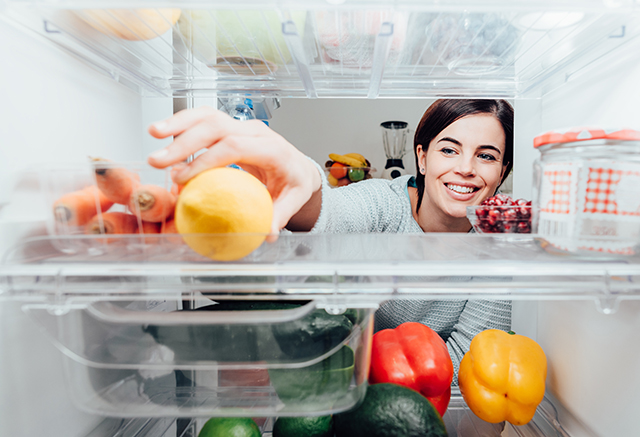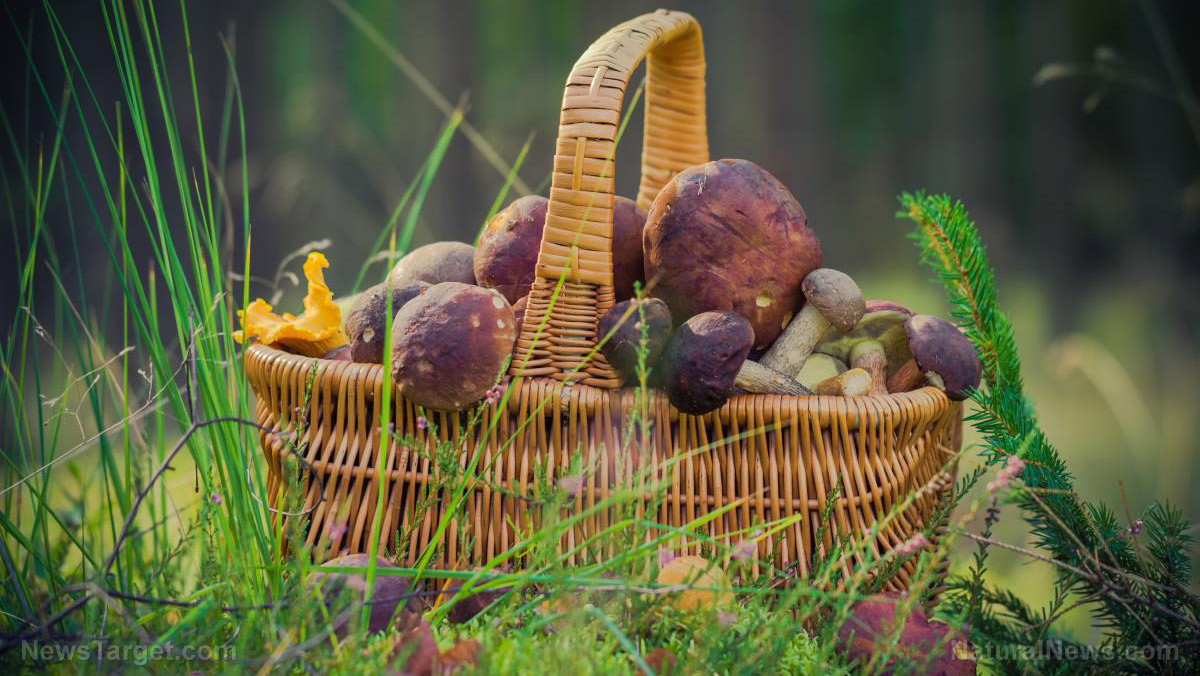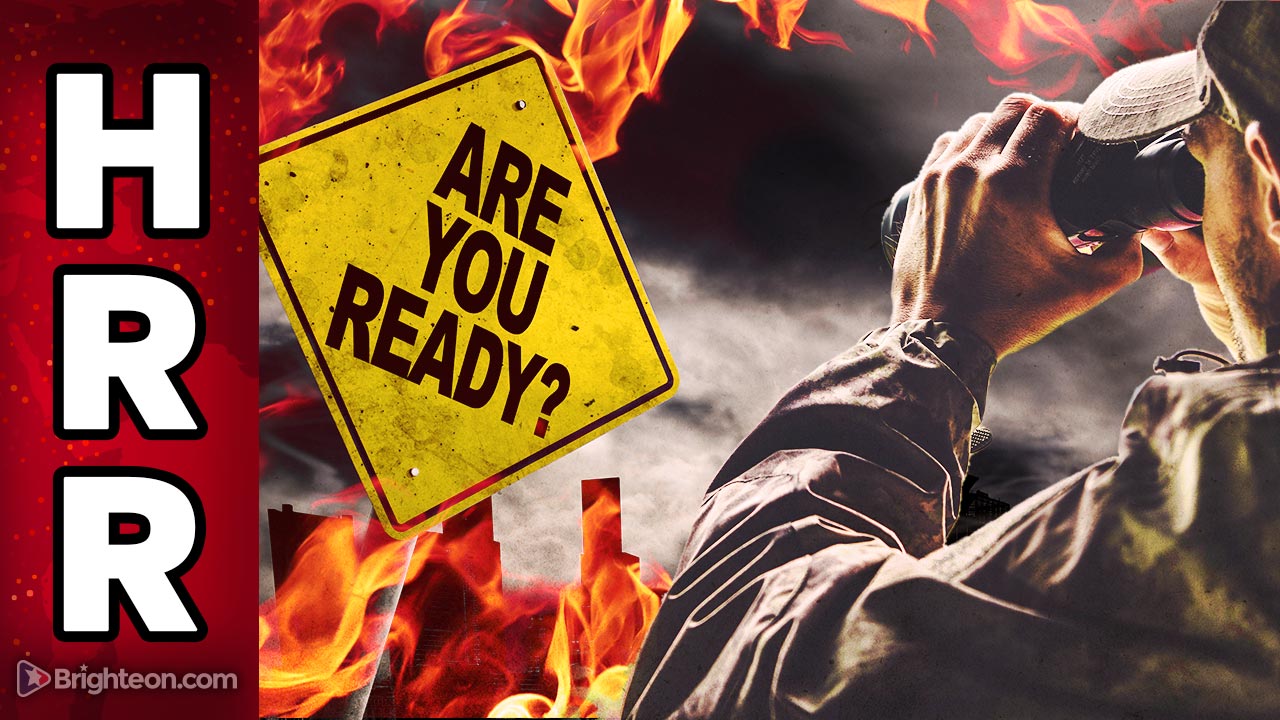 Parler
Parler Gab
Gab
Invest in a freezer alarm
Stocking up on frozen food is a great prepper strategy because it keeps most of its nutritional value, texture and taste in the fridge. And your freezer would be the ultimate preparedness tool, at least until a power outage. Ideally, you should also have a generator and extra fuel or another alternate power source as a backup in case disaster strikes. The minute the power goes out, keep the fridge or freezer doors closed and don't open them unless you're taking something out. Try to keep frozen foods stored continuously at 0 F or below so they can last indefinitely. The inside of your freezer stays cold because of insulation and active heat removal. But during a power outage, the cooling pump stops and you’re left with only insulation. But you shouldn't panic since a fully stocked chest freezer can stay cold enough for at least 48 to 72 hours. Meanwhile, an upright freezer will last about 48 hours unopened. To make the food in your fridge last as long as possible, cover the freezer with blankets but don't cover the vents. Doing this for chest freezers helps insulate them even further. If you're worried about food going bad in your fridge during a power outage, get a freezer alarm. As the name implies, a typical freezer alarm will go off every minute if your fridge or freezer loses power. A freezer alarm is a worthy investment, especially if you have a fully stocked large-capacity freezer at home. You can also check your fridge or freezer for power as a part of your nightly bedtime routine, right after locking the doors and checking all windows. If your chest freezer doesn’t already have a built-in alarm, get a freezer alarm and set it up immediately so your food doesn't go to waste if the power goes out.
Keep fridge doors closed
Did you know that opening your freezer door makes heavy cold air spill out the bottom of the door? It's then replaced with warm air drawn in from the top of the door. If you have electricity at home, this isn't something to worry about. But during a power outage, it can cause food spoilage. According to physics, heat flows from a warmer space to a cooler space until their temperatures are equal. When you don't have electricity, opening the door once can raise the temperature inside your fridge by several degrees. Thankfully, you can keep frozen food cold longer if the power goes off by keeping it very full. If your freezer isn’t full, fill clean plastic gallon milk jugs with drinking water over time. Keep the jugs in your freezer. When the power goes out, the frozen water in the jugs will help soak up massive amounts of heat. On the other hand, if the power doesn’t go out, you can just cut the plastic bottles and smash the ice to cool other things. Alternatively, you can fill up any spaces in the fridge with closed cardboard boxes. It’s not as effective as adding frozen food or water, but it can still help reduce how much warm air goes in when the door is opened.
Deciding what to keep and throw away
You might have second thoughts about throwing away food in your fridge during a power outage, but you need to keep these tips in mind to avoid health issues and prevent food spoilage. Remember, it's not worth getting sick just to save a couple of dollars. Keep an appliance thermometer in your freezer. The ideal freezer temperature is 0 F. Discard perishable food in a freezer that is above 40 F for over two hours. If the inside of the freezer reached 50 F, try to use up all the food. If the food has already gone bad, throw it out. If you have excess fruit and vegetables from your home garden, preserve them via home canning to extend their shelf life significantly. If you have a gas or propane burner or a wood stove, you can make stew and can it. Invest in quality reusable canning lids. If the foods below already contain ice crystals and feel cold, refreeze or eat them immediately. But if the food is thawed and held above 40 degrees for more than two hours, they should be discarded:- Cakes
- Cheesecake
- Eggs
- Entrees
- Frozen meals
- Frozen milk
- Meat
- Meat pies
- Pasta
- Pastries with custard filling
- Pies
- Pizzas
- Poultry
- Rice-based casseroles
- Sausage and biscuits
- Seafood
- Soft or shredded cheese
- Soups
- Stews
- Vegetable juices
- Bagels
- Breads
- Cakes without custard fillings
- Commercial or homemade pie crusts and bread doughs
- Cornmeal
- Flour
- Fruit juices or commercially packaged fruit juices
- Hard cheeses
- Muffins
- Nuts
- Pancakes
- Rolls
- Waffles
Diminished US refining capacity from facility closures contributing to soaring gas prices
By Belle Carter // Share
Food supply 101: How to grow edible mushrooms in your home garden
By Zoey Sky // Share
Home gardening tips: How to grow and harvest radishes
By Zoey Sky // Share
As fuel prices poised to TRIPLE, EU mulls rationing gas across bloc
By Ethan Huff // Share
Glen Canyon Dam close to shutting down as Lake Powell water levels continue to drop
By Arsenio Toledo // Share
Fact check: No, RFK, Jr. did not say COVID was an ethnically targeted bioweapon that spared Jews
By healthranger // Share
Top 10 signs you might be an obedience idiot
By healthranger // Share
By newseditors // Share
Dangerous heat wave expected to set record highs throughout US South and Southwest
By isabelle // Share
Secret Service admits it found marijuana twice at the White House in 2022
By arseniotoledo // Share











